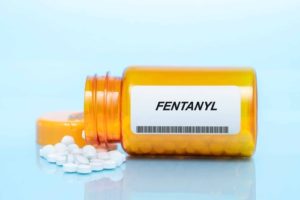
U.S. Rep. Tony Gonzales (R-TX) joined a bipartisan effort requesting that leadership in the U.S. House of Representatives hold votes before the end of the year on two pieces of legislation addressing the nation’s fentanyl crisis.
“Opioid overdose deaths reached over 100,000 in 2021 and are now the leading cause of death for American adults aged 18 to 45,” wrote Rep. Gonzales and his colleagues in an Oct. 7 letter sent to U.S. Speaker of the House Nancy Pelosi (D-CA) and U.S. House Minority Leader Kevin McCarthy (R-CA).
“As you know, opioids like fentanyl have claimed the lives of our family members, friends, and neighbors at alarming rates across the country,” the lawmakers wrote. “Confronting the ongoing opioid epidemic requires us to act on multiple fronts.”
Rep. Gonzales and U.S. Reps. Chris Pappas (D-NH) and Ted Budd (R-NC) specifically requested for votes to be held on the bipartisan Save Americans from the Fentanyl Emergency (SAFE) Act of 2022, H.R. 6946, and the bipartisan Dark Web Interdiction Act of 2022, H.R. 7300.
“The SAFE Act and the Dark Web Interdiction Act will ensure law enforcement retains the tools they need to combat drug trafficking, help remove deadly substances, and keep communities safe,” according to their letter.
If enacted, H.R. 6946, which Rep. Pappas sponsored in March with Reps. Gonzales and Budd as cosponsors, would permanently schedule all fentanyl-related substances as Schedule I drugs to ensure law enforcement can keep them off the streets, according to a bill summary provided by the lawmakers.
“Permanently scheduling synthetic opioids like fentanyl analogues is an essential step in ensuring the safety of at-risk Americans,” the members wrote.
Meanwhile, H.R. 7300, which Reps. Gonzales and Pappas also offered in March, would prohibit the delivery of opioids by means of the dark web, according to the text of the bill.
In their letter, the lawmakers pointed out that the online trafficking of fentanyl exacerbates the nation’s substance use disorder crisis because the anonymity the internet provides has made it more difficult to identify and prosecute those who administer or otherwise operate websites on the dark web that facilitate the distribution of illegal drugs.
“Congress has a duty to ensure the safety and stability of American citizens, including those suffering from substance use disorder, their families, and our communities,” wrote Rep. Gonzales and his colleagues. “Passing the SAFE Act and the Dark Web Interdiction Act is a step towards reaching the end of the opioid epidemic.”



